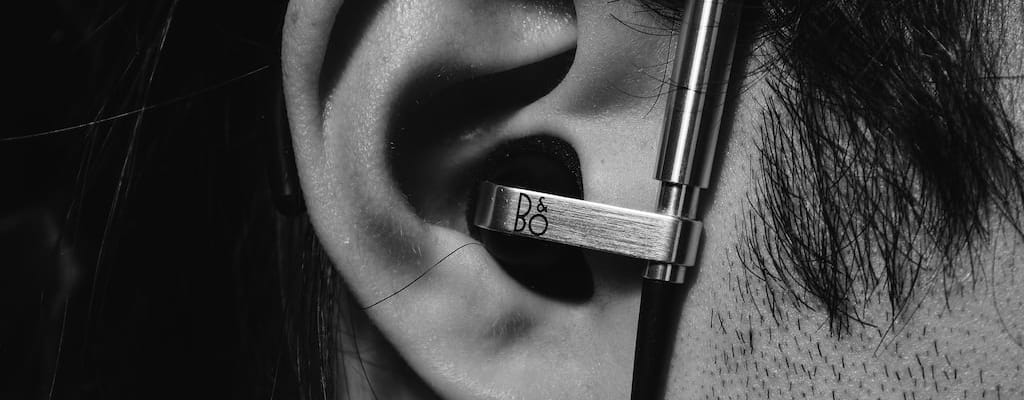believe one’s ears: Idiom Meaning and Origin
What does ‘believe one's ears’ mean?
The idiom "believe one's ears" means to have difficulty accepting or believing what one has heard because it seems too surprising or incredible.

Idiom Explorer
"Up on one's ear" means to be shocked or surprised by something unexpected or unusual. It can also refer to being in a challenging or difficult situation. The idiom is often used to describe a sudden and drastic change in one's circumstances or emotions.
The idiom "keep one's ears open" means to be attentive and listen carefully for information or opportunities.
The idiom "jug ears" refers to someone with large or protruding ears. It is used to describe someone's physical appearance, often in a derogatory or humorous manner.
The idiom "in a pig's eye" is used to express disbelief or skepticism towards something, suggesting that it is highly unlikely or impossible to be true.
The idiom "hear voices" means to have a hallucination or experience an auditory hallucination, where a person hears sounds or voices that are not actually present. This can be a symptom of mental illness, such as schizophrenia.
The idiom "hear things" means to become aware of rumors or gossip that may or may not be true.
The idiom "hear the grass grow" means to have an exceptional ability to perceive or sense even the faintest or most subtle things, often used to describe someone with a keen sense of observation or intuition.
The idiom "hear out" means to listen to someone or something until the end, especially when one might have doubts or reservations. It emphasizes the importance of giving full attention and consideration to someone's ideas, opinions, or explanations.
The idiom "have one's ears pinned back" means to be severely reprimanded or criticized for something one has done wrong. This phrase originated from the physical act of pinning back a dog's ears to punish and correct its behavior.
The idiom "have one's ears lowered" means to have a haircut or to get one's hair trimmed. It is a euphemistic way of referring to getting a haircut, particularly one that involves cutting the hair above the ears.
Ears Deceive
One related idiom that ties in with the concept of "believe one's ears" is "believe one's eyes." This idiom refers to the act of trusting what one sees, even if it appears unbelievable or extraordinary. Similar to "believe one's ears," it emphasizes the importance of perception and the need to trust one's senses.
Another related idiom is "hear things." This phrase is often used to describe situations where someone claims to have heard something unusual or surprising. It conveys the idea of listening to information that may be unexpected or hard to believe. Just like "believe one's ears," it acknowledges the role of hearing in accepting or processing information.
"up on one's ear" is another idiom that complements the concept of "believe one's ears." This phrase signifies being in a state of shock or astonishment. It can be used to describe someone who is taken aback by what they have heard. The expression highlights the emotional impact that certain information can have and further emphasizes the power of belief and perception.
Another idiom that relates to "believe one's ears" is "believe it or not." This phrase is often used to introduce a surprising or unbelievable fact or story. It serves as a preamble to information that may challenge traditional beliefs or preconceived notions. Similar to "believe one's ears," it recognizes the importance of being open-minded and receptive to information that may go against expectations.
"hear out" is another idiom that is connected to the concept of "believe one's ears." This phrase encourages active listening and implies that one should fully consider and understand the information being presented. It underscores the importance of respect and attentiveness when engaging in a conversation or discussion. Just like "believe one's ears," it emphasizes the significance of trusting what one hears and valuing the power of communication.
The idiom "believe one's ears" embodies the idea that perception and trust are essential components of human understanding. It encourages individuals to rely on their senses and embrace new information, even if it challenges their existing beliefs. The related idioms, such as "believe one's eyes," "hear things," "up on one's ear," "believe it or not," and "hear out," further reinforce this notion of trust and belief as integral to effective communication and personal growth.
Overall, the idiom "believe one's ears" serves as a reminder to value and trust one's ability to perceive and process information through hearing. It encourages individuals to remain open-minded and receptive to new ideas and perspectives. By embracing this idiom and its related expressions, we can foster a culture of understanding, trust, and effective communication.
Example usage
Examples of how the idiom *believe one's ears* can be used in a sentence:
- I couldn't believe my ears when I heard that they won the lottery.
- She couldn't believe her ears when she overheard her coworkers talking about her behind her back.
- When he heard the news of his promotion, he couldn't believe his ears.
More "Perception" idioms



